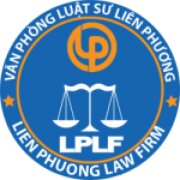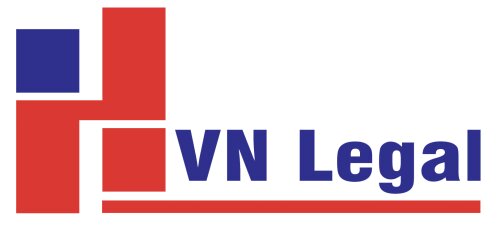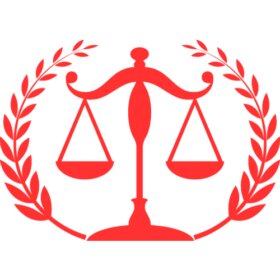Best Collaborative Law Lawyers in Ho Chi Minh City
Share your needs with us, get contacted by law firms.
Free. Takes 2 min.
Free Guide to Hiring a Family Lawyer
List of the best lawyers in Ho Chi Minh City, Vietnam
About Collaborative Law in Ho Chi Minh City, Vietnam
Collaborative Law is an alternative legal approach designed to resolve disputes amicably without resorting to litigation. In Ho Chi Minh City, Vietnam, it is gaining recognition as a pragmatic solution for issues mainly related to family law, such as divorce, child custody, and property division. This method allows the parties involved to negotiate a mutually satisfactory settlement with the help of their lawyers and other professionals, like financial advisors and child specialists. The goal is to reach a fair resolution while minimizing conflict and preserving relationships.
Why You May Need a Lawyer
Individuals might seek legal advice in Collaborative Law for several reasons:
- Divorce and Separation: Collaborative Law can be a less adversarial option for couples who are separating and wish to maintain a cordial relationship post-divorce.
- Child Custody and Support: When negotiating parenting arrangements and support, a collaborative approach can help maintain a focus on the child's best interest while ensuring both parents have a fair say.
- Property and Financial Arrangements: Collaborative Law can facilitate a fair division of assets and liabilities without the stress of litigation.
- Preservation of Relationships: For business partners or family members with disputes, Collaborative Law helps maintain a working or familial relationship post-resolution.
Local Laws Overview
Collaborative Law in Ho Chi Minh City is rooted in the principles of honesty, cooperation, integrity, and professionalism. Key aspects to be aware of include:
- Voluntary Participation: Both parties must willingly choose Collaborative Law as their method of dispute resolution.
- Confidentiality: All discussions and materials shared during the process are confidential, promoting open communication.
- Withdrawal Clause: If any party decides to pursue a court-based solution, the legal professionals involved in the Collaborative Law process must withdraw from representing those parties in litigation.
- Agreement-Based Resolution: The outcome relies on mutual agreement and is documented in a binding contract once reached.
Frequently Asked Questions
What is the primary goal of Collaborative Law?
The main objective is to resolve disputes amicably without going to court, focusing on fair solutions and preserving relationships.
What issues can Collaborative Law address?
Collaborative Law can handle a variety of issues, primarily those related to family law, like divorce, child support, and custody, as well as some civil disputes.
Is Collaborative Law legally binding?
Yes, once an agreement is reached, it is documented and can be made legally binding, subjected to approval by the court if necessary.
Do both parties need a lawyer in Collaborative Law?
Yes, each party is represented by their own lawyer to ensure fair representation and to facilitate the negotiation process.
Can I switch to litigation if Collaborative Law doesn't work?
While possible, you'll need to hire new legal representation since the lawyers involved in the collaborative process cannot represent you in court.
How long does a collaborative process take?
The timeline varies depending on the complexity of the issues and the cooperation of the parties involved, but it usually takes less time than litigation.
What happens if we reach an impasse?
If parties reach an impasse, they can bring in a neutral mediator to facilitate a resolution.
How does Collaborative Law differ from mediation?
Unlike mediation, where a neutral third party facilitates the discussion, Collaborative Law involves each party having legal representation and working synergistically toward a solution.
Is Collaborative Law costly?
While legal costs vary, Collaborative Law often saves money by reducing court fees and other litigation expenses.
What happens to shared information if we go to court later?
The confidentiality agreement typically prevents shared information from being used in court, protecting both parties.
Additional Resources
For those seeking further information on Collaborative Law in Ho Chi Minh City, consider contacting the following:
- Local Bar Association: Offers directories of certified Collaborative Law professionals.
- The Department of Justice: Provides guidelines and resources related to family laws in Vietnam.
- Family and Children Support Centers: Non-governmental organizations that provide resources and support in family dispute resolutions.
Next Steps
If you require legal assistance in Collaborative Law, consider the following steps:
- Consult with a lawyer specializing in Collaborative Law to discuss your specific situation and needs.
- Gather any necessary documentation and information relevant to your case to facilitate the process.
- Consider attending a consultation with a collaborative professional to understand the process and commitment required.
- Plan for a collaborative meeting with all involved parties and professionals to start negotiating a resolution.
Taking these steps will help ensure you're well-prepared for your collaborative law journey, leading to a more amicable and efficient resolution to your legal matters.
Lawzana helps you find the best lawyers and law firms in Ho Chi Minh City through a curated and pre-screened list of qualified legal professionals. Our platform offers rankings and detailed profiles of attorneys and law firms, allowing you to compare based on practice areas, including Collaborative Law, experience, and client feedback.
Each profile includes a description of the firm's areas of practice, client reviews, team members and partners, year of establishment, spoken languages, office locations, contact information, social media presence, and any published articles or resources. Most firms on our platform speak English and are experienced in both local and international legal matters.
Get a quote from top-rated law firms in Ho Chi Minh City, Vietnam — quickly, securely, and without unnecessary hassle.
Disclaimer:
The information provided on this page is for general informational purposes only and does not constitute legal advice. While we strive to ensure the accuracy and relevance of the content, legal information may change over time, and interpretations of the law can vary. You should always consult with a qualified legal professional for advice specific to your situation.
We disclaim all liability for actions taken or not taken based on the content of this page. If you believe any information is incorrect or outdated, please contact us, and we will review and update it where appropriate.

















